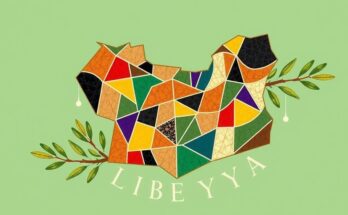On February 10, Sudan’s major antiwar coalition, Taqaddum, split into two factions: Taasis, which supports the Rapid Support Forces (RSF), and Somoud, which aims to maintain neutrality. Analysts view this division as a potential opportunity for Somoud to distance itself from RSF associations and reconnect with civilians, while still contending with the ongoing humanitarian crisis and its own legitimacy issues.
On February 10, the largest antiwar coalition in Sudan, known as Taqaddum, fractured over disagreements regarding participation in a parallel government established by the Rapid Support Forces (RSF), a faction involved in Sudan’s ongoing conflict. This division has led to the formation of two distinct factions within the coalition: those siding with the RSF’s government, now referred to as Taasis (Foundation), and a smaller group intent on preserving their political integrity, called Somoud (Resilience).
The Taasis faction primarily consists of armed movements that seek to translate their military power into political influence through collaboration with the RSF. Political analysts suggest that these groups lack a grassroots support base, hence their reliance on powerful forces like the RSF to secure political positions. Kholood Khair, director of Confluence Advisory, commented, “Armed groups don’t have a constituency, so they rely on a big, armed actor [like the RSF] as a guarantor for a political seat.”
Conversely, the remaining traditional political leaders, including former Prime Minister Abdalla Hamdok, have opted not to join the RSF’s government. They have formed the Somoud coalition, aiming to maintain their reputations and political stance against collaborating with a group identified by the United States as committing genocide in Darfur. Khair noted, “Political parties don’t need [a guarantor] and it would be political suicide for them to form a government with the RSF… they don’t want to be seen as forming a government with genociders.”
Initially created to mediate peace in the conflict that erupted between the RSF and Sudan’s army, Taqaddum faced severe credibility challenges after recent events. The coalition’s reputation deteriorated significantly following a controversial Declaration of Principles signed with the RSF, perceived as legitimizing their actions after multiple reported atrocities. Observers like Alan Boswell have expressed concerns that Taqaddum was perceived as aligned with the RSF due to this agreement.
Analysts posit that Taqaddum’s split may enable the Somoud coalition to redefine itself, distancing from the RSF and enhancing its appeal to the Sudanese populace. Boswell suggests Somoud may have a less tarnished reputation now but remains significantly smaller and must engage with local groups to ensure their views align with public sentiment.
Bakry Elmedni, a spokesperson for Somoud, argues that the criticism of Taqaddum’s alignment with the RSF is unfounded and part of a politically motivated smear campaign. He clarified that Taqaddum’s intentions were misconstrued, stating, “We knew from day one the accusations [against Taqaddum] were part of a political campaign… Everyone knew they were lies.”
The fragmentation of Taqaddum has led to the emergence of two factions within Sudan’s antiwar movement: Taasis, working with the RSF, and Somoud, committed to maintaining neutrality. While Taasis aims to leverage military strength for political gain, Somoud seeks to reconnect with civilians to restore credibility and legitimacy. This division offers an opportunity for Somoud to redefine its role amidst an ongoing humanitarian crisis, fostering a more genuine connection with the Sudanese populace and advancing the fight against the continued violence.
Original Source: www.aljazeera.com




